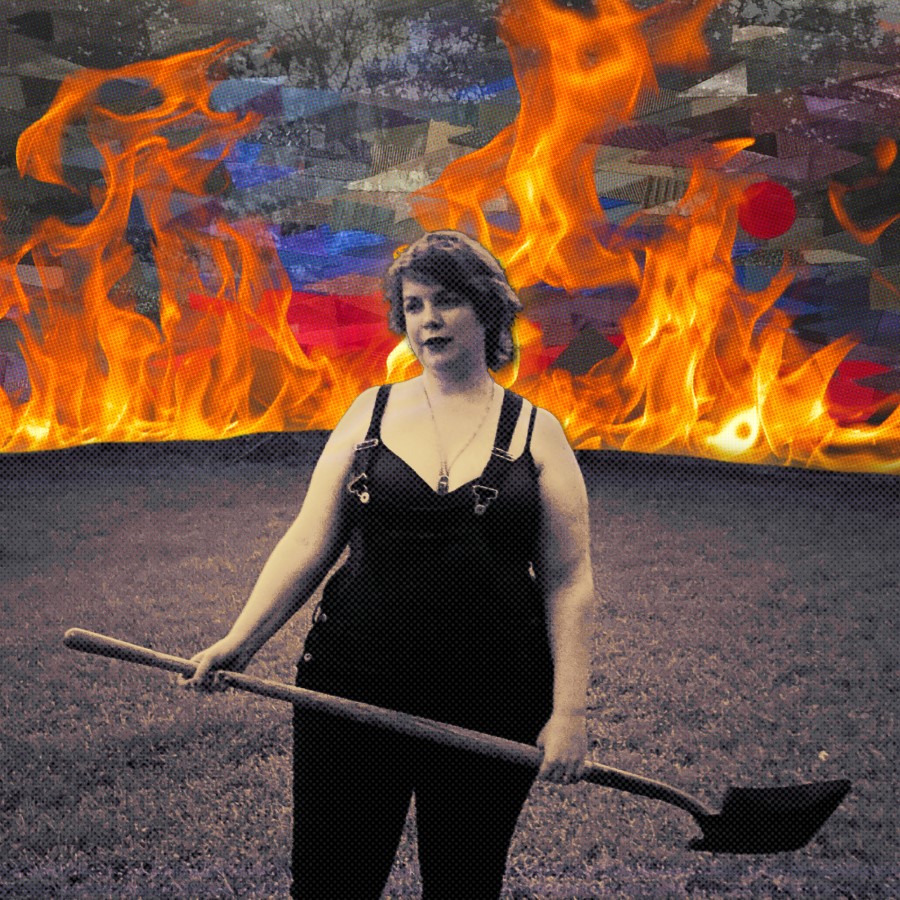The bathroom at the Hole In The Wall club in Austin, Texas is the setting for the self-directed “I Thought” video by Jenny Parrott.
“The bathroom there is like a character,” Parrott says. “A place where women, femmes and non-binary people go to hang out, to fool around and party, and to get away from men for a second.”

Parrott wrote “I Thought” as a response to an abusive relationship she was in “at a time in my life where I swore I’d cut out people with violence in their repertoire,” she explains.
To that end, Parrott also says that the video also shows “how violence and love can be all around, and how it can be very hard for many of us to know where the safe spaces are, or who is a safe loved one.”
The video also stars dancer Terrance Carson of Ballet Afrique, Ally Means on viola, and Carrie Jane Fink as Parrott’s partner in the clip.
What is your vision for a more just music industry?
We would need a re-distribution of resources in our society to create a more just music industry. Women, BIPOC, LGBTQIA, poor people, etc. in the music industry have MUCH less access to lessons, equipment, safe places to work, networking opportunities, social connections, enough funding to create the work, and to NOT live in poverty, than those at the top of the social hierarchy. People think / pretend that bands are playing Bonnaroo or playing late-night TV promotional shows it’s a wondrously working meritocracy. It’s not. I definitely think some amazing genius gets to be heard, but the system silences so many people.
I often can’t remember Cishet whites dudes I meet on tour, however I remember most fellow Queers, Femmes and NBS, and BIPOC folks because we are out-ratioed like 10:1, which makes it harder to build social capital. In after-gig situations, after-show drinks where lots of connections are made, names dropped, deals whispered, etc., it’s rare to join up and be greeted with respect and conviviality, it’s usually somewhere between objectification or a brush-off. Lots of these actual and social spaces are created by, for, and about the white Cishet male artist, and so they are often unsupportive and even dangerous for Femmes, Queers, and POC.
Basically if I were in charge, I’d give all the artists universal basic income, free healthcare, school, shoe repair, and an inverse wage gap to how it is now.
How do you feel your coming out journey plays into your music?
I think coming out was really hard and uncomfortable, but worth it, like any endeavor where you are trying to exist in honesty. I feel like living in Austin and being surrounded by mostly acoustic musicians my first few years here, I’ve not only recently come out as pansexual, but also as not solely a roots musician. I love Dolly, but I also love Bjork, Slick Rick, Asha Bhosle, Benny Moré, and Sam Cooke. It’s hard to pretend to be someone you’re not to fit in, because in the end, the code switch isn’t always worth it. Why want a seat at a table that doesn’t want the real you anyway? Life is short and you’re not free when you have to hide who you are.
Does your album have an overarching theme?
The themes of my album are life, death, faith, and trying to keep going. I have major depressive disorder. Sometimes I have to slow down and breathe my way through life’s really shitty moments to keep going. There are songs about ecological and societal collapse, that kind of death, witnessing wildfires, and the fires of the soul. It’s a moosh album about fires, basically.
Do you have any songwriting tips you can share?
Just write songs. They don’t need to be three minutes long with verse-chorus-verse, chorus-bridge-chorus and just the right amount of twang and 3.5 puns or clever rhyming phrases. Also, don’t worry if your songs suck. Sing your heart out! I have written many lame-o tunes, but they are all just steps you take toward getting to the next SUPER JAM that will really make your heart crack!
We are lucky to have a one in a ba-million chance to be born on this planet and into “consciousness,” so to have the chance to sing something from the meat in between your ears… Hey, that’s already beautiful!
How do you kill the long hours in the van?
Listening to podcasts, texting everyone how much I love them, dreaming about food, laughing at my feelings, writing poems, reading books, being afraid of getting in more accidents, and stressing about being late and getting paid. Have the best liberated feelings and try to enjoy the ride!
